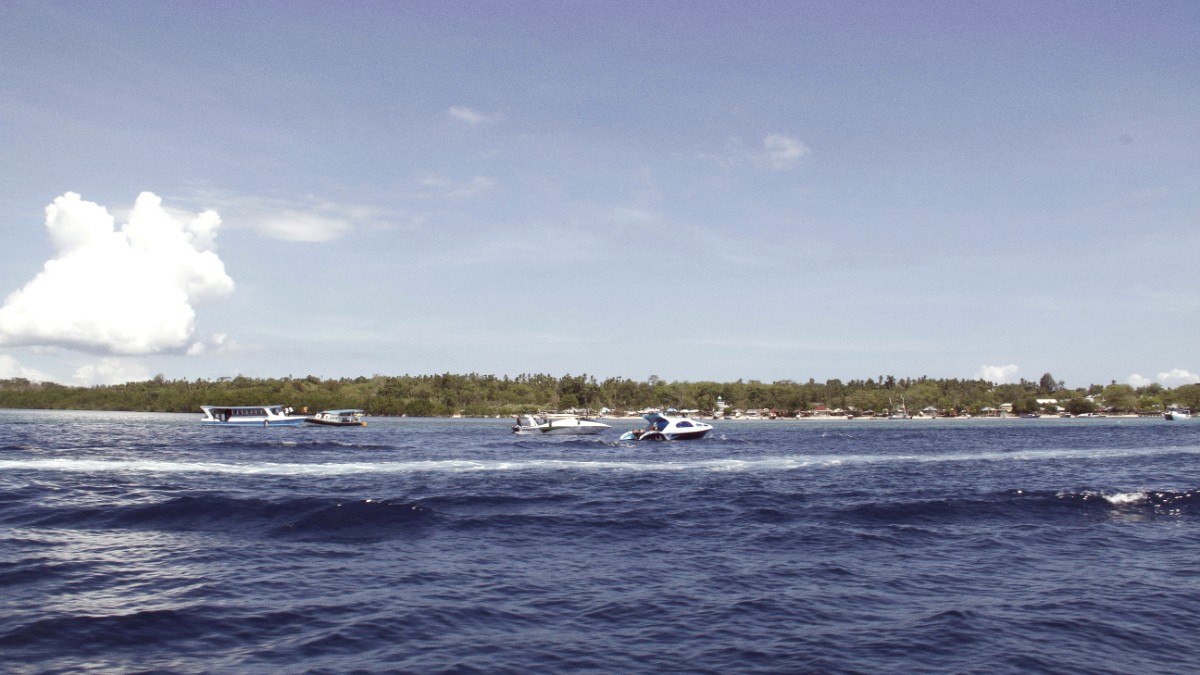
Sulawesi, Indonesia
Manado welcomes travelers seeking both relaxation and exhilaration. Its proximity to world-renowned dive sites, active volcanoes, and unique wildlife reserves makes it a destination for those who wish to experience the diverse natural wonders of Indonesia. You will find a city where diverse communities live in harmony, creating a distinct Minahasan identity, known for its warmth and hospitality.
Streets buzz with activity, markets overflow with fresh produce, and the scent of local cooking fills the air. Evenings along the Boulevard mean a relaxed atmosphere, perfect for enjoying a sunset over the bay.
For those who appreciate finding a place where traditional customs meet modern life, Manado is a fascinating backdrop. Your journey here begins an exploration into a part of Indonesia that holds discovery and genuine connection.
Manado sits on the northeastern tip of Sulawesi, one of Indonesia's largest islands. This strategic position on the Celebes Sea shaped its development as a port city and a center of trade. The region of North Sulawesi is part of the Pacific Ring of Fire, a geological belt with frequent seismic activity and numerous active volcanoes. This geological dynamism produces a dramatic landscape of mountains, craters, and fertile plains.
The city stretches along Manado Bay, creating a natural harbor and a picturesque coastal setting. From many points in the city, you see the volcanic peaks that define the skyline, including the prominent Mount Klabat. Just a short boat ride offshore Bunaken National Marine Park sits, a cluster of five islands, including Bunaken, Manado Tua (an extinct volcano forming a striking cone), Siladen, Mantehage, and Nain. These islands are the core of a marine ecosystem recognized globally for its extraordinary biodiversity.
Inland, the Minahasan highlands rise, with a cooler climate and a different kind of natural beauty. This area has fertile farmlands, serene lakes like Tondano and Linow, and active volcanoes like Mount Mahawu and Mount Lokon.
Volcanic activity also leads to natural hot springs, allowing for relaxation amid lush surroundings. This varied terrain means you can move from a bustling city to an underwater world, and then to a cool mountain retreat, all within a few hours.
North Sulawesi’s geography also has a role in its distinct flora and fauna. Beyond the marine park, rainforests hold species found nowhere else.
Tangkoko Nature Reserve, a few hours north of Manado, holds refuge for endemic animals like the spectral tarsier, black macaque, and bear cuscus.
This combination of marine, volcanic, and rainforest ecosystems makes Manado and its surroundings a prime destination for nature enthusiasts and researchers. The varied landscape supports a diverse range of activities.
When planning your activities, grouping geographically similar attractions helps. Visit a volcano and a lake on the same day in the highlands, or dedicate full days to marine exploration in Bunaken.
Dedicate full days to marine exploration in Bunaken for a comprehensive underwater experience.
Group a volcano and a lake visit on the same day when exploring the Minahasan highlands.
This approach lessens travel time and maximizes your overall experience.
Manado’s history dates back to the 16th century, largely shaped by its strategic location along ancient trade routes. Early Portuguese traders arrived in the region, drawn by the spice trade, with traces of their presence, including some early Christian influences. The Dutch East India Company (VOC) later had a strong presence, making Manado a significant trading post in Eastern Indonesia.
This colonial period deeply influenced the city’s architecture, administration, and social structure, with some Dutch colonial buildings still visible, although many have been replaced over time.
The city also is a long-standing Chinese community, whose arrival centuries ago contributed to Manado's commercial dynamism and cultural diversity.
The Ban Hin Kiong Temple, founded in 1673, is the oldest Buddhist temple in Eastern Indonesia and a statement to the enduring presence and influence of this community.
In 1958, Manado briefly became a center for the Permesta rebellion, a regional uprising. This period of conflict, though short-lived, left its mark on the city’s narrative.
Today, Manado’s history is evident in its diverse population, its unique cuisine, and its architectural remnants. The city has a living museum of its past, where different cultural threads intertwine to create a distinct identity.
The city acts as a launchpad for world-class diving and snorkeling adventures within Bunaken National Marine Park. Dramatic coral walls, a vast array of fish species, and frequent sightings of turtles and reef sharks await you. This marine park consistently ranks among the top dive destinations globally, attracting enthusiasts with its clear waters and abundant life.
Beyond the marine realm, Manado’s hinterland invites exploration of its volcanic landscapes. Mount Mahawu has a relatively gentle trek to a steaming crater lake, with striking views. For a more challenging adventure, consider Mount Lokon, an active volcano near Tomohon, which offers expansive panoramas. These volcanic excursions offer a powerful connection to Indonesia's geological forces and showcase the region's raw natural beauty.
Wildlife enthusiasts find Tangkoko Nature Reserve an unique highlight. This lowland rainforest holds endemic species, including the spectral tarsier, the world's smallest primate, and the Sulawesi crested black macaque. Guided treks into the reserve offer intimate encounters with these rare animals in their natural habitat, with memorable photographic opportunities and a chance to support conservation efforts.
Macaques foraging in the morning presents a truly special experience.
Manado has thrilling outdoor activities, rich cultural experiences, and flavorful dining.